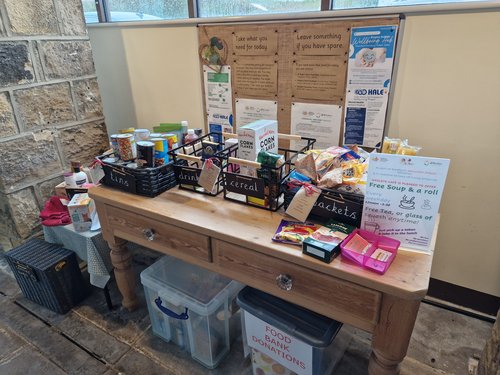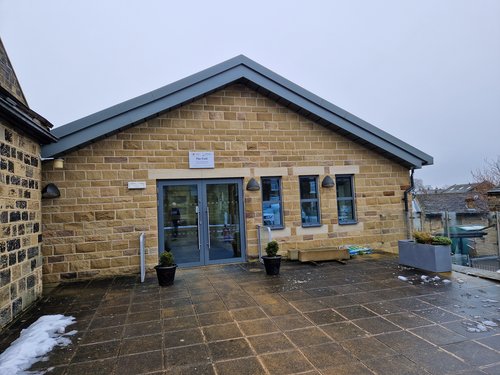The sound of children playing in the Sanctuary and the delicious smell of the lunch menu welcome visitors entering the church. The imposing building is a community asset in the area, offering space for dozens of activities from children's groups to choral rehearsals.
Most importantly, the leadership in Baildon Methodist Church in the Yorkshire West Methodist District has been investing in making the buildings and the congregation more climate-friendly, notably though applying to A Rocha UK’s awards.

A long journey
It all started in 2006, when they decided to update the state of the church which had gas boilers which power circulated in hot water all around the premises and the premises were not well insulated. Passionate about climate justice, John Anderson drove the journey towards net zero starting with a focus group that set up a vision, not about the building but to build a better future.
“We did not have a website or money. The building was a sieve when it came to heat and it was very moldy. We looked for people with skills in our congregation and we found some great people who became the team of our Future Building Group,” remembers Mervyn Flecknoe, one of the lead pastors at Baildon.
Despite the skills and the enthusiasm of the congregation, the journey was an arduous one, particularly when it came to finding the right architect. Luckily, one of their volunteers had the required skills and picked up where the professional left off.
Funding is also a tough one and it took them 10 years to get the necessary money from donations, fundraising and grants. From then, they started improving the building by triple-glazing the windows, insulating the ceilings, removing the oil boiler and gas heating, and installing far infrared heating.
Wesleys Café, bringing the community together
After they had turned the church from a drafty hall into a well-insulated place, the team decided to open a limited company to manage the community café. “It is the key to everything. Gradually people came more and more and donated money to the point that we now have a steady monthly income used to maintain and improve the building,” adds Mervyn. A success that paired with community support such as free meals at the café for those who need them and a community pantry.
In 2014, the church lost its dedicated minister and decided to make its plans and present them to the circuit. Since then, worship has been laid on the shoulders of dedicated lay pastors and they have embraced the Jesus Shaped People view on life and church. “Our tagline is loving the world, loving, loving people, loving the world is it's all about love,” says Mervyn.

The Fold, a neutral church building
After the Building Improvement for Growth (BIG) took over from the previous building group, an idea sprouted: why not construct a passivehaus church building? “We thought of it as the most unusual church building in England. The only reason it is not passive house accredited is that all inspectors live in the south of England and cannot visit us every week,” regrets Melvyn.
A passive house is an energy-efficient house with top-notch insulation, triple glazing, impressive airtightness levels, mechanical ventilation with a heat recovery system and a mechanism to heat water (solar heating or heat pumps). The aim is to reduce the need to heat the building.
Built just before the Covid pandemic, the Fold is all of that and is constantly used by the community. The pandemic allowed BIG to improve the existing building, installing new toilets and redecorating almost every room. They also have three car charging points
So far, their solar panels allowed the church to achieve significant energy independence, with 53 out of 84 days not requiring imported electricity due to their 52 kWp photovoltaic panels and 26kWh battery storage system. Despite high electricity consumption due to its busy community center, the church has managed to generate more income from exporting surplus electricity than it spends on imports during summer months, while maintaining affordable rates for its facilities and focusing on spiritual growth and community service.
Yet, building work is never fully done and BIG plans to improve insulation of the sanctuary’s ceiling in the summer. They also want to add more solar panels to their roof and put a conservatory on that end of Westlands with an airlock.

